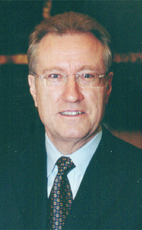Madam Speaker, I am pleased to join our new Minister of Foreign Affairs in discussing with the House this evening the possible Canadian peacekeeping activities on the border between Ethiopia and Eritrea.
The minister has spoken about the diplomatic efforts in the United Nations and the Organization of African Unity with respect to bringing peace to this region. I would like to further discuss the matter in terms of supporting our interests as well as our values as long standing participants in peacekeeping efforts with the United Nations and around the world.
Peacekeeping speaks in a concrete and active manner to the values most dear to Canadians: peace, democracy, human rights and compassion.
Canadians have been and remain prepared to join other nations to better the world, whether in Africa, Asia, Central America, the Balkans or the Middle East. We want to participate in helping to bring peace and stability in the world. This is in our interest as Canadians to continue to help the United Nations to carry out these missions.
Five years ago Canada completed a study on how to improve the United Nations rapid reaction capability. A key recommendation is materializing in the form of SHIRBRIG, the standby high readiness brigade. The concept behind SHIRBRIG is to provide the UN with a readily deployable brigade to support UN operations. Its job is to react quickly to get a UN presence established and then to make room for a UN follow-on force.
The United Nations mission in Ethiopia and Eritrea, UNMEE for short, would mark the first deployment of SHIRBRIG. The core of the UN mission's headquarters planned for UNMEE would consist of military headquarters staff from SHIRBRIG. Canada has committed up to seven officers to the planning element of this staff.
The UN force commander is expected to be the Dutch brigadier-general currently in command of SHIRBRIG. We now have an opportunity to advance our goal of enhancing the UN's rapid reaction capability.
Let me now turn to the mandate of this mission. The UN security council resolution 1320 of September 15 authorizes the peacekeeping mission to monitor the cessation of hostilities in a temporary security zone along the border between Ethiopia and Eritrea.
UNMEE would consist of up to 4,200 troops, including up to 220 military observers. The resolution also authorizes the deployment for a period of six months.
The Canadian forces can make a meaningful contribution to this mission. Our contribution would consist of a mechanized infantry company, including a company headquarters and three infantry platoons equipped with armoured personal carriers. It would also have engineer and logistics support and other combat services support units. It may also include a reconnaissance platoon equipped with our Coyote vehicles. All of the equipment we will be sending on this mission will be the best state of the art equipment that can be provided.
The total number of personnel will be about 400 and they will be there for a period of no more than six months. The United Nations is well aware of our commitment with respect to the six month timeframe.
The Canadian forces would be deployed within a Dutch battalion and under the operational command of a Dutch battalion commander. Canada has worked closely with the government of the Netherlands on this proposed mission. I have met with my counterpart on two occasions with respect to this, and the Dutch parliament, as the foreign affairs minister has indicated, is currently considering this matter. Our approval is tied to their approval since the battalion is a joint effort.
I have discussed with the chief of defence staff, General Baril, the risks involved in this mission and the impact on the Canadian forces. While the military risk is assessed as low, the health and environmental risks, including the threat posed by land mines and unexploded munitions, are of greater concern. To better assess these risks we are sending a strategic reconnaissance mission to the area. Before the government deploys Canadian troops on this proposed mission, the chief of defence staff must be satisfied that logistics, medical and security arrangements are acceptable.
I know that members of the House are concerned about the impact of the high operational tempo of the last few years on the quality of life of the Canadian forces.
As Minister of National Defence, I have made improving the quality of life of the men and women in the Canadian forces one of my main priorities.
I can assure members that we have taken this into consideration in our planning. With the reduction in our personnel overseas, from over 4,000 a year ago to some 2,500 today, the pressure is certainly much less.
Having carefully weighed these and other factors, and pending the final military advice of General Baril, I believe that Canada should make available the mechanized infantry company group of about 400 personnel as I have outlined.
We have a real opportunity and the capability to make a difference in Africa. We have an opportunity to enhance the UN's reputation as a force for peace and we have an opportunity to build on our peacekeeping legacy. In short, we have the chance to do justice to our words, our values and our policies. That is why I ask the House to support the proposal to deploy the Canadian forces to a UN mission in Ethiopia and Eritrea.

